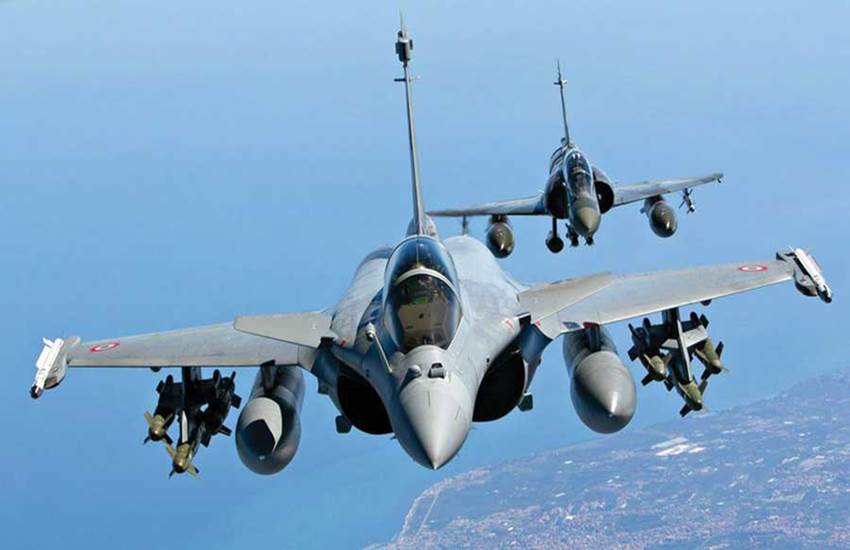The recent (Friday, 14 December, 2018) Supreme Court ruling on the petitions pertaining to the Rafale jets deal was hailed as a shot in the arm for the Modi government, which had evidently been shaken by the adverse electoral verdicts in the three key states of Chhattisgarh, Rajasthan and Madhya Pradesh. However, even the apex court’s dismissal of the petitions, including one filed by Yashwant Sinha, Arun Shourie and Prashant Bhushan seeking a court-monitored CBI investigation of the Rafale deal, is being viewed with suspicion. The court, the trio of petitioners contends, has not adequately addressed the questions they had raised on the matter. The petitioners also say the government has misled the court by providing a false statement that a Comptroller & Auditor General (CAG) report was submitted before the Public Accounts Committee (PAC) and its redacted version placed before Parliament regarding the pricing of the jets under the revised agreement for 36 fighters. Post verdict, while Prime Minister Narendra Modi is already training his guns on Rahul Gandhi, the Congress is fighting back seeking a recall of the judgement based on the misleading statements claimed to have been made by the government. The petitioners have also stated that it was dangerous for the court to rely on statements made in a sealed cover in delivering its judgment. Another contention is that the Prime Minister unilaterally signed the deal for the 36 Rafale jets, around the time when tender negotiations had been virtually completed and the Dassault CEO had stated (March 25, 2015) that contract negotiations were 95 per cent complete and a deal was to be inked at the earliest. The fact that the court was not in a position to disclose the information provided to it, not even to the petitioners, gives room for doubt about the verdict. To contend that matters pertaining to defence deals should not be discussed in public makes matters worse since the nation had to deal with issues such as Bofors, coffins and bulletproof vests. The highest judicial institution has been brought under suspicion over a deal that has great importance in boosting the nation’s defence capabilities. There is, no doubt, the need to question shady defence deals, especially when the taxpayers’ money is being spent on arms and ammunition that are apparently not the best in class and doubts are being raised about their suitability for the country’s requirements and conditions. No one says Rafale jets per se are improper. That scrutiny has been done by experts. Questions have been raised about the manner in which prices were escalated, number of aircrafts to be bought reduced and most worrisome, Hindustan Auronautics Limited (HAL) deprived of the contract which was conveniently dished out to Anil Ambani’s newly registered company. The excuse given by the Defence Minister Nirmala Sitharaman, at one point of time, was that HAL had no experience in manufacturing aircraft for war. As if Anil Ambani’s company, registered only a few days prior to the signing of the contract between India and France, has requisite experience. To spoil the broth even further, the former French President François Hollandé had stated that the Indian government had asked for inclusion of Ambani’s company in the deal. Another concern, by dragging senior officers of the Indian Air Force to court to testify on technical matters concerning the aircraft and the deal, a precedent has been set now, which could be damaging even if misconduct is not proven. The actions of both sides, the ruling and the opposition, are eroding people’s faith in institutions that are meant to function as bulwarks against forces of corruption that are working against the interests of the country. The court ruling should not form the basis of political mudslinging. It should be kept outside the purview of material used to score brownie points with the electorate. While the alacrity of the Congress in bringing out possible corruption in the major defence deal ought to be appreciated, it cannot be forgotten that the government under the grand old party had failed to get the deal through despite being in power long enough. The BJP, too, cannot hide behind secrecy clauses forever, given that a major defence procurement has hit rough weather. In the given context, the focus should quickly shift to ensuring that the forces get what they need in quick-time, above all else. In the whole bickering that is going on over the deal, the nation’s security is being compromised and Make in India is becoming a pipe dream. The biggest dilemma has been created by the Union government itself which has pointed out the mistake made in the judgement. The government has now tried to correct the judgement by suggesting that the portion submitted to the SC regarding the CAG report to PAC must be altered. That is a killer. Sealed envelopes, falsification of facts and misguiding the court are terrible things. Worse, however, is the public opinion that has lost hope of getting justice from the apex court. This breakdown of trust in the judiciary may have a long-term negative impact on our democracy.
Trust breakdown

- Categories: Edit
- Tags: Arun ShourieeditorialORISSA POSTPrashant BhushanRafale judgementSupreme CourtTrust breakdownYashwant Sinha
Related Content
A Curious Appointment
By
Post News Network
April 5, 2025
Agentic AI
By
Post News Network
April 3, 2025
Pain For Le Pen
By
Post News Network
April 2, 2025
Chaos in Kathmandu
By
Post News Network
April 1, 2025
Business & Politics
By
Post News Network
March 31, 2025
Religious Freedom
By
Post News Network
March 30, 2025